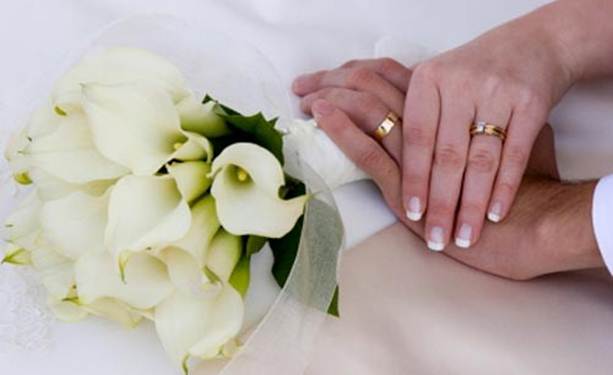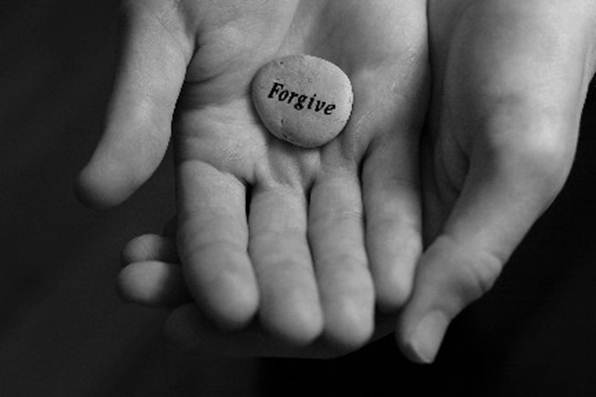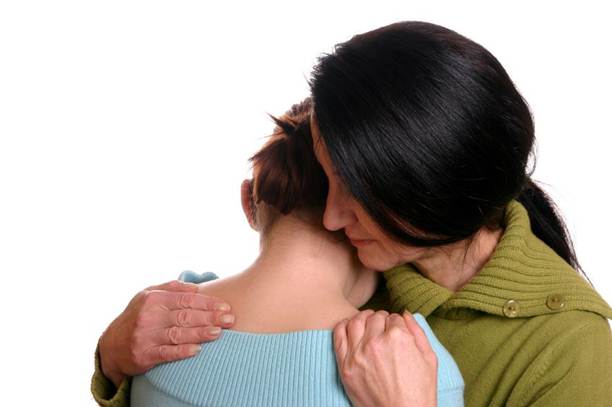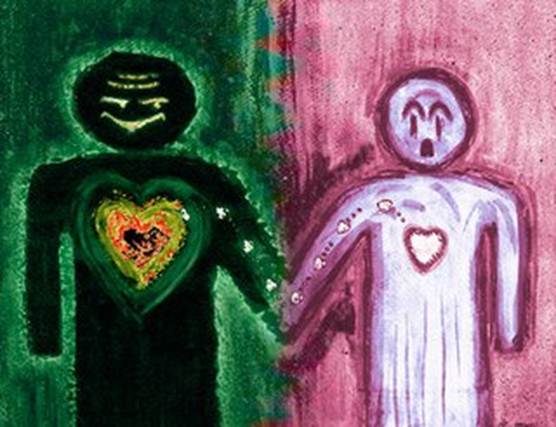Being able to let go of past hurt can help
heal the mind and body.
Most of us, at some time or another, have
had to deal with the slings and arrows of common misfortunes – unfaithfulness,
lies, betrayal and insults. But what do we do with our rage and desire for
revenge? Could old-fashioned forgiveness be the key?
Researchers and academics may have the
answer. In recent years ‘forgiveness laboratories’ have sprung up across the US
– taking forgiveness out of the pulpit and converting it into research
findings.

The
research suggests forgiveness enhances our health by reducing the physiological
burden created by unresolved stressful experiences
Researchers at Hope College in Michigan
found the cardiovascular systems of subjects labored when they recalled people
who had hurt them. Their stress was significantly greater when they thought
about revenge rather than forgiveness. They reported feeling more in control
when they tried to empathise with their offenders, and enjoyed a greater sense
of power, wellbeing and resolution when they were able to let go of hurt.
University of Tennessee studies suggest
that harbouring feelings of betrayal may be linked to high blood pressure,
which can ultimately lead to stroke, kidney and heart failure, or even death.
Results showed the ‘high forgivers’ – those
who are able to forgive easily – had a lower resting blood pressure and smaller
increases in blood pressure rate than ‘low forgivers’ or the bigger grudge
bearers. High forgivers also reported fewer GP visits. The research suggests
forgiveness enhances our health by reducing the physiological burden created by
unresolved stressful experiences.
Good relationships
We all have the ability to forgive, and
some evolutionary psychologists see it as an adaptive trait. Throughout
evolution, groups able to cooperate and stay together – instead of splitting up
– had a better chance of survival.
Current research indicates that forgiveness
requires good social skills. High forgivers are more empathetic and friendly,
able to express more positive emotions towards others – including those who
have hurt them. It could be that some people have better skills at maintaining
a relationship, and one of those skills is the ability to forgive.
Good for you
From a psychological perspective
forgiveness has huge benefits. More and more mental healthcare professionals
are now discovering the strength of forgiveness as a psychotherapeutic tool,
saying there is nothing like it for dispelling anger, fixing marriages and
banishing depression.

The
forgivers get their emotional health back
“In a nutshell, the forgivers get their
emotional health back,” says University of Wisconsin-Madison educational
psychologist Robert Enright. In numerous studies, people who had not resolved
their anger towards a wrongdoer all improved when therapists helped them learn
to forgive.
Enright’s forgiveness program is a process
involving four distinct phases. The first phase involves the victim becoming
aware of the emotional pain caused by an unjust injury. Anger and other
negative emotions are brought out into the open and healing can begin. Phase
two, the decision phase, is when the victim realizes that focusing on the
injury and wrongdoer will continue to cause further suffering. Here the victim
entertains the idea of forgiveness as a healing strategy and lets go of
thoughts of revenge. Phase three, the work phase, is when the victim thinks
about the perpetrator in a new way. It’s not about excusing them, but about
trying to understand them better. The final phase is when the victim realizes
they are experiencing emotional relief.
Do it for yourself
Like many things, forgiveness is easier
said than done and depends on the person and the level of offence. You might
think it’s perfectly normal to hold a grudge but before you decide forgiveness
is for wimps, try this experience.

Forgiveness
means releasing this cycle of emotional turmoil.
Think of a person against whom you’re
holding a grudge. Picture them and hold onto your unwillingness to forgive.
Now, observe what emotions are there: anger, resentment, sadness? Notice how
you are holding your body. Is it tense or feeling heavy? Is your brow furrowed?
Now bring awareness to your thoughts. Are they hateful, spiteful, angry
thoughts?
Most people who do this experiment are
disturbed by the tension and anger that thoughts of ill will towards another
person can illicit. Bear in mind these negative emotions are permanently
stirring around inside you, and costing you in terms of your health and
wellbeing. Forgiveness means releasing this cycle of emotional turmoil.
It is possible to forgive someone who has
deeply wronged us. The following are a series of steps based on the book Forgive
for Good (HaperCollins, $23.95) by Dr Fred Luskin.
Steps to forgiveness
- Acknowledge how wrong the person was
to hurt you.
If you can, articulate the pain that
betrayal generates rather than avoiding it. If this is particularly difficult, you
may find it helpful talking about it to a very close friend you trust or a
counselor. Practicing a stress management technique like deep breathing or
meditating to soothe your body’s fight-or-flight response can help during the
forgiveness process.
- Think about what forgiveness means to
you.
This is an individual experience and can
mean many things to many people. Some believe forgiveness means ‘to untie’,
others view it as a letting go and no longer being responsible for another
person’s accountability. Most agree it involves a ‘giving up’ of something,
whether it be anger, hate or the right to vengeance.

Think
about what forgiveness means to you
- Find a definition that is relevant to
you.
Be careful often people make the mistake of
confusing forgiveness with forgetting or condoning. Forgiveness is for the
person who was hurt, not the perpetrator. It is saying I have already been
offended and I’m making the decision to let go so I don’t continue to be
burdened by the offence.
- Think about how the wrong you have
suffered is affecting your emotional and physical wellbeing.
Do you find you’re preoccupied with
thoughts of pain, anger and hate? Do you feel drained and depressed because of
the wrongs suffered? By remaining unforgiving you remain joined to the
wrongdoing.
- Make a commitment to yourself to do
what you have to do to feel better.
Forgiveness is for you and not for anyone
else.
- Try to replace negative and angry
thoughts, feelings and behaviour
with more positive ones, regardless of
whether the offender is sorry for their behaviour. Put yourself in the
wrongdoer’s shoes to better understand what motivated their actions and to
build empathy skills.
- Empathy for someone who has hurt you
can be hard to achieve,
But it may help if you try to understand
what it was like for them when they were growing up. Were they a victim of
conflict and abuse? What was happening in the person’s life when they hurt you?
Remember, you are in control because you are choosing to relinquish resentment.
You choose to be healed by your forgiveness.

Empathy
for someone who has hurt you can be hard to achieve
- Remember, you can forgive and not
necessarily re-establish a relationship.
While it takes only one person to forgive,
it takes two to reconcile. And, in some cases, the best course of action is
never to see the offender again.
- Let go of expecting things from other
people they do not choose to give you.
Put your energy into looking for another
way to get your goals met. Instead of mentally replaying your hurt, seek out
new ways to get what you want. Remind yourself you can have health, love, peace
and prosperity.
- Hatred, no matter how justified, harms
you and not the wrongdoer.
As long as you continue to wallow in hatred
and blame, you remain a victim of the injustice that occurred. By letting go
and taking responsibility for your own emotional and physical wellbeing, which
can include forgiveness, you finally untie the knot that has kept you bound to
the offender.
- Remember, a life well lived is the
best revenge.
Instead of focusing on your emotional
wounds and thereby giving the person who caused you pain power over you, learn
to look for love, beauty and kindness. Forgiveness is about choice and personal
power.